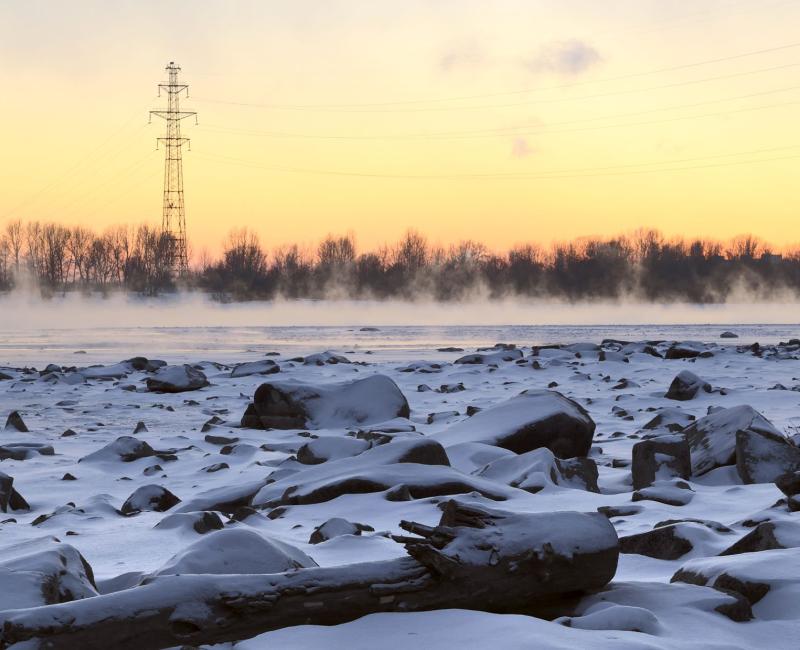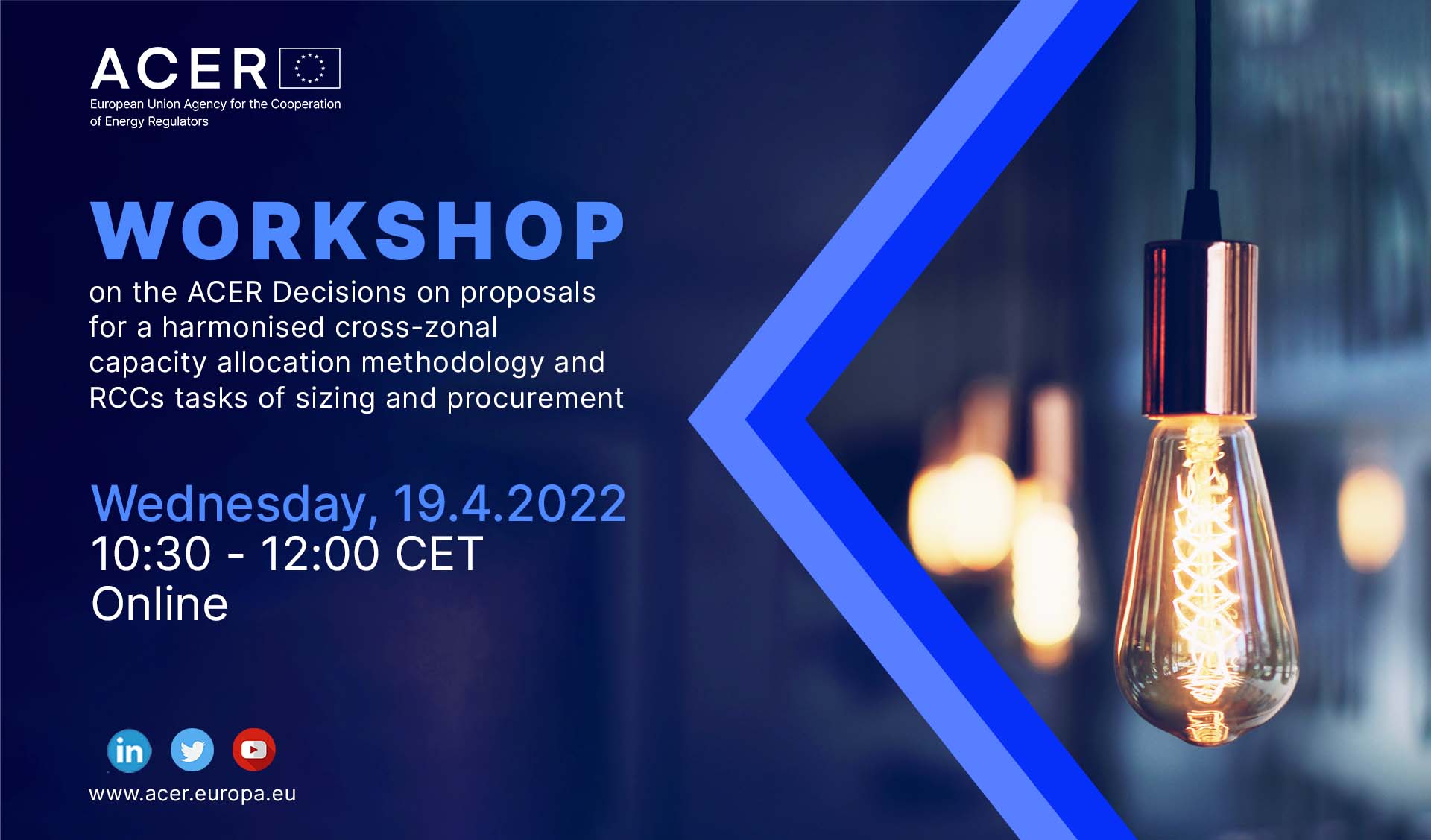ACER - ENTSOG Workshop on maximisation and efficient use of gas transmission capacities



ACER shall adopt a recommendation for identifying good practices for the treatment of investment requests for projects of common interest (PCIs), as tasked by the (2022) Regulation on guidelines for trans-European energy infrastructure.
In light of revised Trans-European Networks for Energy (TEN-E) provisions, and building on the experience gained with latest cross-border cost allocation (CBCA) investment requests, ACER is updating its (2015) CBCA Recommendation.
As part of this process, ACER invites stakeholders to submit their views on the existing CBCA Recommendation, including:
The public consultation will run from 23 February until 31 March 2023.
ACER will evaluate the received feedback and take it into consideration when drafting the document.
The updated CBCA Recommendation shall be adopted by 24 June 2023.

ACER publishes today its report on Italy’s proposed gas transmission tariffs. ACER assessed the proposed methodology to calculate the gas transmission tariffs, including:
Whilst acknowledging that the public consultation of the Italian National Regulatory Authority, ARERA, is very well documented and very informative, ACER recommends that ARERA improves:
Access the report on the Italian gas tariffs.
Access all ACER reports on national tariff consultation documents.

The national regulatory authorities (NRAs) of the Nordic Capacity Calculation Region requested from ACER an extension of six months to agree on the Nordic Transmission System Operators’ (TSOs’) proposed amendment to the market-based cross-zonal capacity allocation methodology.
The Nordic Capacity Calculation Region comprises the following 3 countries: Denmark, Finland and Sweden.
The market-based allocation process compares the market value of cross-zonal capacity for the electricity balancing capacity market with the forecasted market value for the day-ahead electricity market. It then allocates the capacity to the market that generates the most welfare by using the cross-zonal capacity, which:
ACER intends to decide promptly on this request from the Nordic NRAs.

The European Commission held a public consultation on the reform of the EU’s electricity market design from 23 January 2023 to 13 February 2023.
ACER and the Council of European Energy Regulators (CEER) in their joint response welcome the European Commission’s attention to long-term markets as the key enabler for investment stability and affordability for consumers.
The ACER-CEER response to the Commission’s consultation comprises their replies to the questions asked by the Commission in its consultation as well as additions to the replies in the Annex (also submitted to the Commission as part of our consultation response). In the Annex, ACER and CEER delve deeper into elements that are subject to consultation:
In addition, the Annex highlights several important aspects of the electricity market design framework that were not addressed by the Commission in its consultation, yet in our opinion, have a significant impact on electricity market functioning:

The transmission system operators (TSOs) submitted to ACER a proposal for the harmonised methodology for cross-zonal capacity allocation for the exchange of balancing capacity or sharing of reserves.
The allocation of cross-zonal capacity allows the integration of balancing capacity markets, creates welfare, lowers the costs for the procurement of balancing capacity, hence lowering costs for tariff payers, while ensuring security of supply.
The processes covered by the methodology (i.e. co-optimisation and market-based process) compare the market value of cross-zonal capacity for the balancing capacity market and for the day-ahead electricity market, and allocates the capacity to whichever of these markets generates the most welfare by using the cross-zonal capacity.
The methodology will provide harmonised rules and processes and will therefore replace the existing methodologies for co-optimisation and regional market-based processes.
ACER will assess the methodology proposed by the TSOs and revise it where necessary.
ACER has six months (until 16 June 2023) to decide on the TSOs’ proposal.
To collect the views of stakeholders, ACER’s public consultation on the TSOs’ proposal will be launched end of March for four weeks (provisionally foreseen from 30 March to 27 April).
An ACER workshop will take place on 19 April 2023.


ACER assesses the proposed methodology to calculate tariffs, including:
The Agency observes that improvements on the proposed transmission tariffs can be achieved based on the provisions of the EU Network Code on Gas Transmission Tariffs and provides some recommendations to the Belgian national regulatory authority CREG.
ACER recommends to CREG to:
Access the report on the Belgian gas tariffs.
Access all ACER reports on national tariff consultation documents.